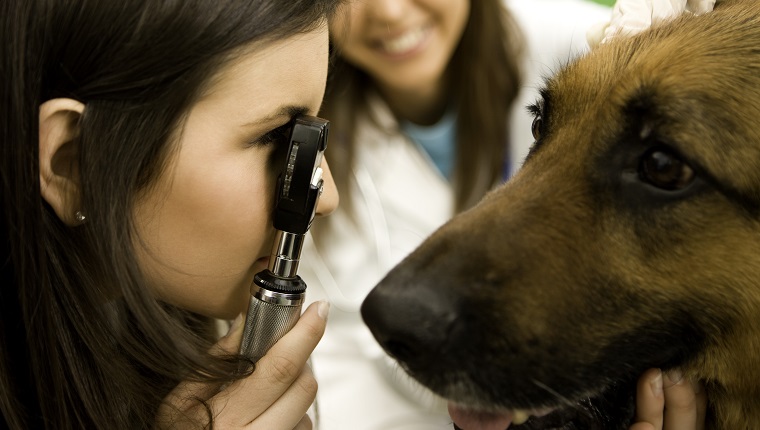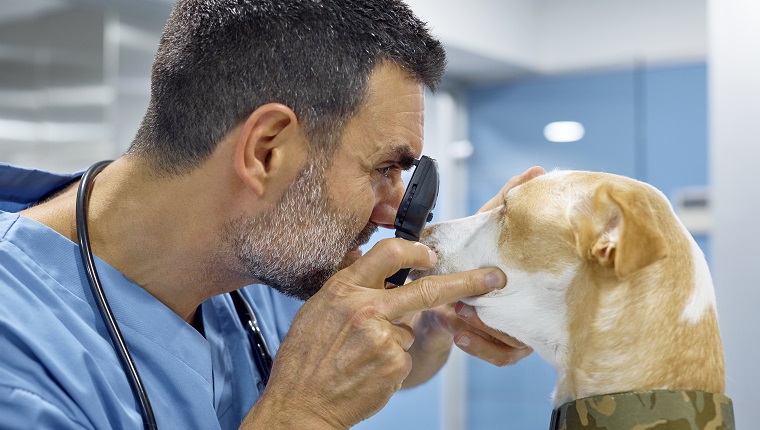Uveitis in dogs is a condition where parts of the uvea become inflamed. A dog’s uvea consists of the iris, the choroid, and the ciliary body, all of which are parts of the dog’s eye.
There are many causes of the condition, with some of the most common being viral and parasitic infections, eye tumors, and trauma to the eye area. A dog might show symptoms like squinting, reddening of the eye, or cloudiness of the eye.
If you see signs that your dog might have uveitis, then you must consult your veterinarian for a proper diagnosis and course of treatment. Here’s what you should know about the symptoms, causes, and treatments for uveitis in dogs.
Symptoms Of Uveitis In Dogs
Uveitis can produce a number of symptoms in dogs.
Some of the common symptoms include:
- Cloudy eyes
- Red eyes
- Watery eyes
- Squinting
- Avoiding bright lights
Causes Of Uveitis In Dogs

The cause of uveitis in dogs could be any of a number of things. In many cases, the precise cause is never confirmed.
Some of the most common causes include:
- Viral infections
- Fungal infections
- Bacterial infections
- Trauma to the eye area
- Immune-mediated diseases
- Diabetes
- Eye tumors
Treatments For Uveitis In Dogs
If your veterinarian suspects your dog has uveitis, they’ll carry out a number of tests, including a full physical examination. They’ll measure the intraocular pressure of your dog’s affected eye as part of this testing.
In some cases, vets may carry out further tests, including X-rays, blood tests, and urine tests in order to rule out certain root causes of the condition.
Once the vet confirms the diagnosis, they’ll take steps to deal with the inflammation of the eye. This could involve topical medications and anti-inflammatory drugs.
Depending on the cause of the condition, your vet might recommend various courses of action, including repairing any damage to the eye that might have been caused by a trauma. In some cases, your vet might also suggest that your dog see an eye specialist.
Has your dog ever had uveitis? How did your vet help treat the issue? Tell us all about it in the comments below!









